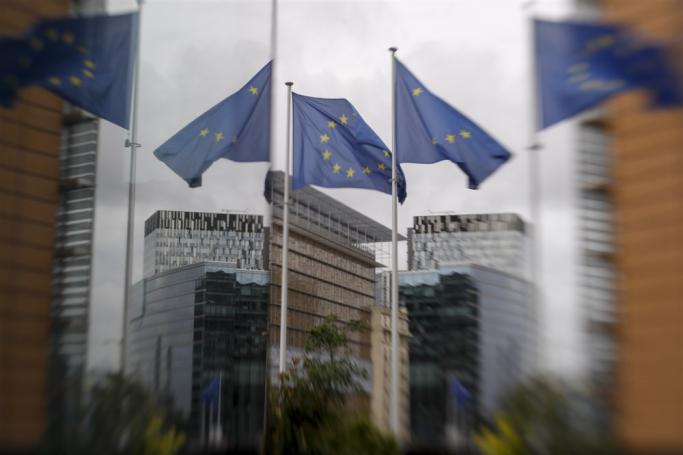The International Crisis group has come up with ways that the EU should respond to the junta’s planned elections and other steps it can take to alleviate Myanmar people’s suffering.
The International Crisis Group is an independent organisation working to prevent wars and shape policies that will build a more peaceful world. The suggestions for the EU were included in the International Crisis Group’s 2023 Watch List of ten countries and regions facing deadly conflict, humanitarian emergency or other crises in 2023.
Crisis Group says that with no sign of either an end to violence or a credible return to civilian rule, the EU and its member states can help address Myanmar’s political and humanitarian crisis through the following steps.
Firstly, the EU and its member states should take a very clear position that conditions are not in place for credible elections or a legitimate outcome given the extreme violence and climate of fear created by the regime; the fact that the polls are being organised by the same military that overturned the (broadly credible) 2020 election results in a coup; the fact that the regime has detained or killed many leaders, MPs-elect and members of the winning party; and the fact that it seems the vast majority of the public does not support these polls being held and has no interest in voting in them.
The EU and its member states should encourage their international partners to speak with one voice in this regard, including by working with ASEAN and others in the region to build an international consensus, and coordinate common messaging. In the absence of a clear roadmap out of the crisis, there is indeed a very real risk that some governments, particularly in Asia, will be tempted to view the polls as an acceptable return to civilian rule, and push to resume normal ties with the new regime.
Secondly, the EU should throw its weight behind efforts to discourage election-related violence by both the regime and the resistance.
While the EU and member states have limited leverage over the generals, they should work closely with other countries and groupings that may be better positioned to push the junta to desist from violence and repression. Among the actors with greater potential influence are the UN Security Council, ASEAN, India, Japan and China.
The EU should also press the National Unity Government to issue at the earliest a clear statement of principles announcing its opposition to violence against electoral targets (including candidates, polling
stations, poll workers, political parties and voters), and explaining the risk such attacks by its supporters would pose to the credibility and moral standing of the anti-regime resistance movement.
Thirdly, the EU should continue to develop its framework of sanctions focused on the military and its business interests, and make clear that those who commit election-related abuses may also be designated.
Specifically, Brussels should expand targeted sanctions on senior police and military officers most responsible for post-coup abuses and repression, including in relation to the elections, as well as military-owned or -linked companies. Such measures in this context send a useful signal about the EU’s values and principles, beyond whatever limited reputational or financial impact they may have.
The EU should, however, refrain from revoking Myanmar’s access to the Everything but Arms trade scheme that gives developing country products tariff-free access to the EU single market, as the impact would fall on workers – mostly young women from poor families employed in the garment industry – while there is no indication that such a move would create leverage over the regime or meaningfully affect its finances.
Fourthly, the EU and its member states should avoid taking steps that would legitimise the regime, while maintaining ties with the actors who are playing key roles in shaping the country’s internal dynamics.
Beyond staking out a clear position on the elections, they should maintain engagement with the National Unity Government and other key actors, including ethnic armed groups and civil society representatives. More broadly, it is important to continue supporting the roles of the ASEAN and UN special envoys, and to follow events on the ground closely as they evolve over the course of 2023, in order to be able to react quickly to emerging crises or situations that call for joint diplomatic initiatives.
Finally, the EU should continue to provide, and whenever possible, increase its assistance to address both the current humanitarian emergencies and longer-term needs of the Myanmar people relating to health, education and livelihoods.
Given regime restrictions on NGOs and humanitarian access, aid delivery remains extremely challenging. It is important to provide aid through the mechanisms and partners that can most effectively reach those in need – including working more closely with local organisations, providing appropriate levels of cross-border assistance.
While international donors have so far been hesitant to do so, it may also be time for them to consider supporting the service delivery wings of the better-established ethnic armed groups, which have long experience in delivering assistance and services in the areas they control, as Crisis Group has outlined in more detail in a recent report.
Given the shrinking humanitarian space, the EU and its member states should also prioritise the provision of cash assistance to those in need, which is often more logistically feasible than the delivery of in-kind support. It is also crucial to continue providing significant funding for Rohingya refugees in neighbouring Bangladesh, including greater support for the UN humanitarian appeal, given the signs that donor fatigue is setting in and resources increasingly difficult to mobilise.












